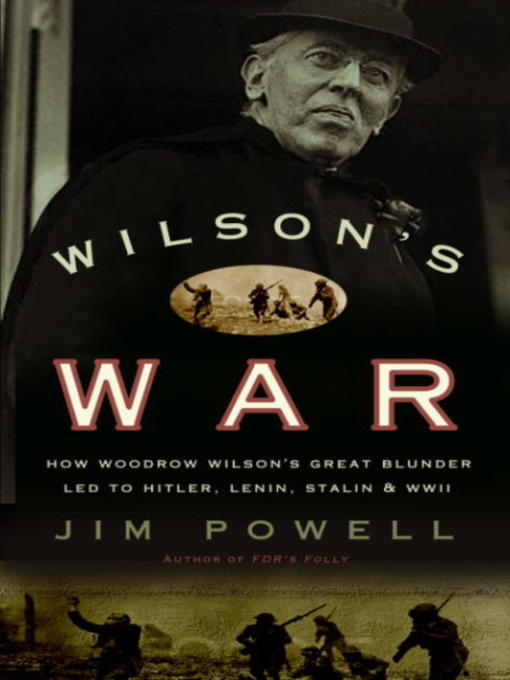
Wilson's War
How Woodrow Wilson's Great Blunder Led to Hitler, Lenin, Stalin, and World War I I
کتاب های مرتبط
- اطلاعات
- نقد و بررسی
- دیدگاه کاربران
نقد و بررسی

March 14, 2005
The Holocaust, the gulags, the Cold War and a death toll exceeding 61,911,000 can all be laid at Wilson's doorstep, contends this sophomoric work in isolationist historiography. Powell, a Cato Institute fellow and author of FDR's Folly
, argues that Wilson's intervention in WWI enabled the Allies to defeat Germany and impose a punitive peace settlement that made Germans bitter and antidemocratic, facilitated Hitler's rise, etc. Extending—indeed, almost parodying—Niall Ferguson's contrarian arguments from The Pity of War
, he insists that a victorious German Empire would have subsided under its own weight, with Hitler and Stalin remaining unknown malcontents. Powell rehashes his arguments at inordinate length to associate Wilson's policies with subsequent Nazi and Soviet atrocities. When not flaying Wilson, Powell rides Cato's hobbyhorse of libertarian doctrine, sprinkling his chronicle of totalitarian horrors with prim sermons on free trade and laissez-faire economics; the Bolsheviks are thus scolded for their opposition to "consumers freely voting with their money, deciding which quantities, qualities, brands, styles, colors, prices, and so on that they preferred." Powell scores some points criticizing the flimsiness of Wilson's pretexts for intervention. But in using the unforeseen consequences of Wilson's actions as a brief for isolationism, he ends up blaming the 20th-century time line on one man. The result is a tendentious and heavy-handed distortion of history.

May 1, 2005
Following his reactionary attack on the New Deal in "FDR's Folly", historian Powell (senior fellow, Cato Inst.) sets his sights on another progressive hero, Woodrow Wilson. Here he argues that Wilson's political naiveté and his decision to enter World War I were chiefly responsible for the terrible events that followed in Germany and Russia. In Powell's view, the war had reached a stalemate, and were it not for U.S. involvement, the Allies would have lost. The defeat of Germany, then, led to the rise of Hitler and World War II. Credible historians have long pondered the fate of Europe had World War I ended differently. But Powell is on shaky ground indeed when he links Wilson to the rise of Bolshevism in Russia. This book has limited value as a work of revisionist history, but it may revive a spirited assessment of Wilson in the pages of history journals. Recommended only for comprehensive academic collections. -Thomas A. Karel, Franklin & Marshall Coll. Lib., Lancaster, PA
Copyright 2005 Library Journal, LLC Used with permission.

























دیدگاه کاربران